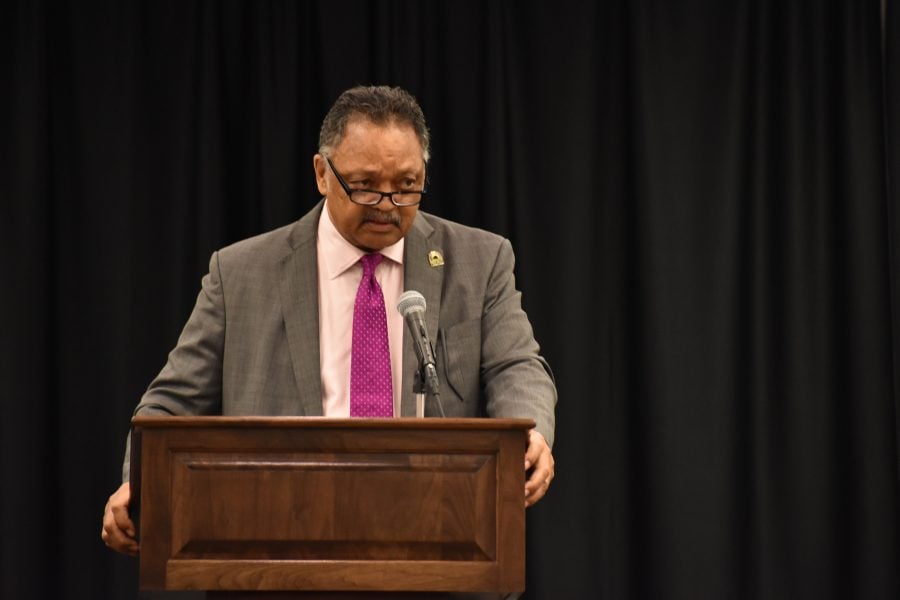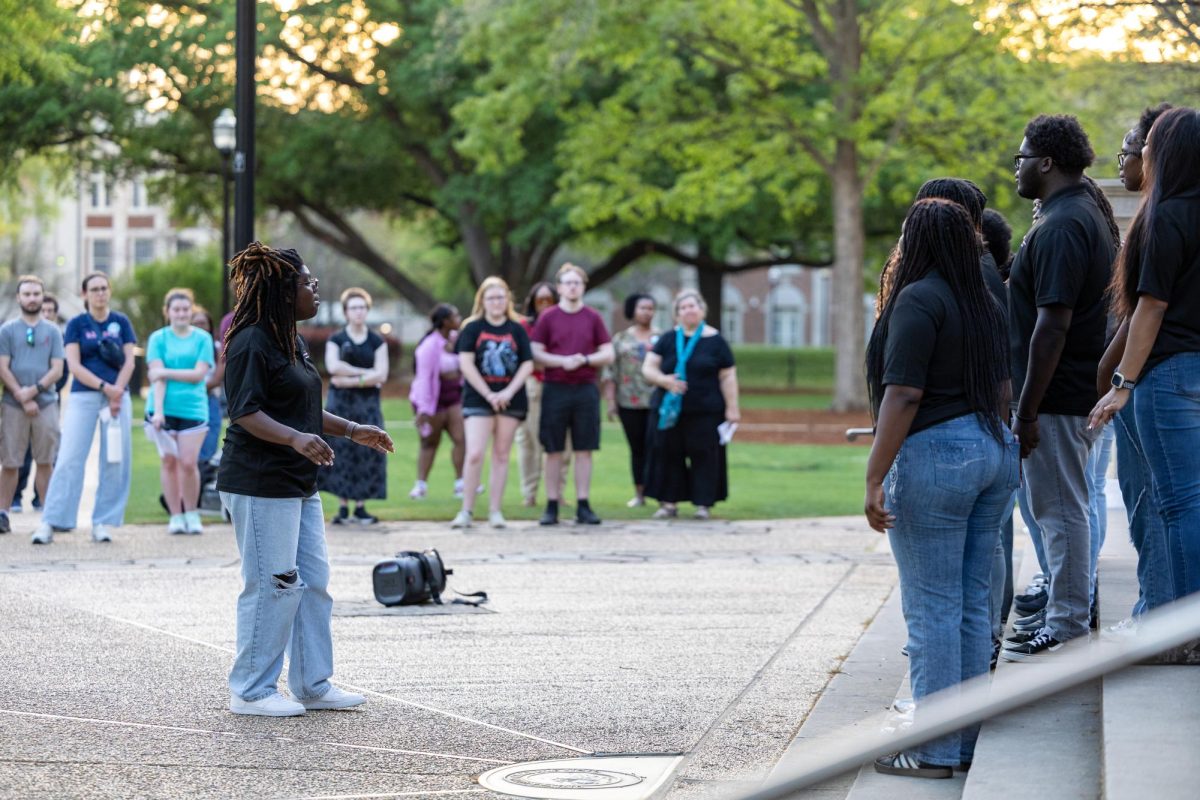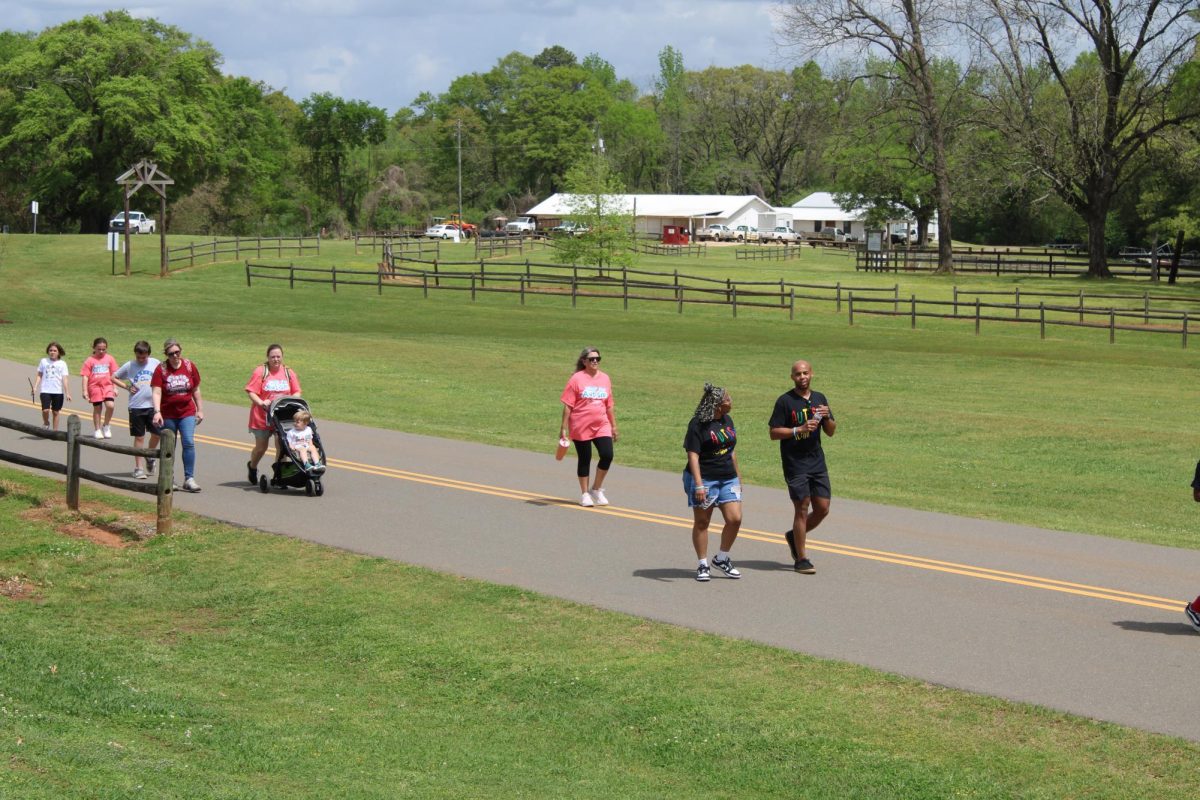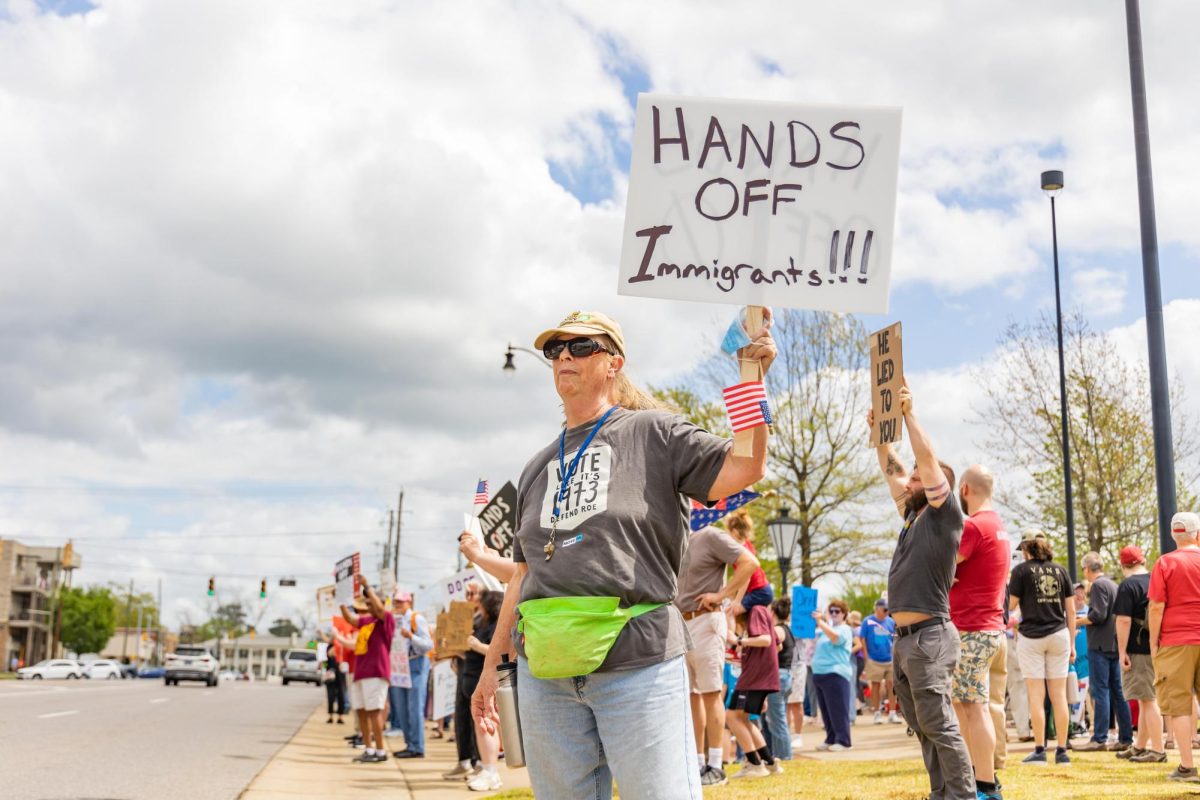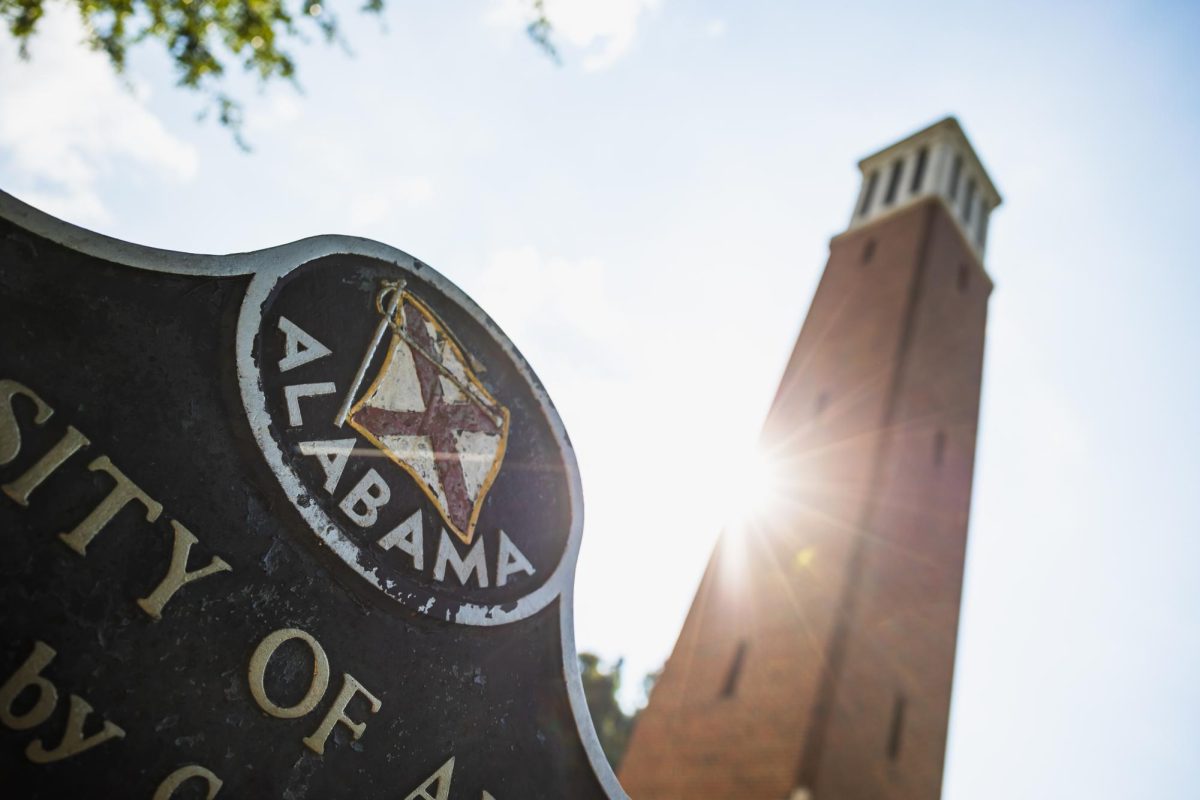The Rev. Jesse L. Jackson, Sr. spoke to a packed ballroom in the Ferguson Student Center about the current political and social climate Wednesday night.
Jackson is a prominent civil rights and faith-based activist who worked with Dr. Martin Luther King, Jr. and was the first black candidate to win contests in a presidential primary. He addressed the importance of standing united in a harshly divided country in an event hosted by the Black Student Union, University Programs and the Office of Diversity, Equity, and Inclusion.
“What makes America great is the right to fight for the right,” Jackson said, encouraging students to vote and get involved in politics.
The presentation opened with the sounds of the Amazing Afros Gospel choir, followed by a brief introduction by associate dean of students Stacy L. Jones. Vice president of the BSU Darnell Sharperson spoke about Jackson’s journey, his achievements and accolades, as well as his political influence and organizations he has founded over the years.
Jackson discussed the tensions stirring the political and social climate of the United States, noting the divisive influence of President Donald Trump. With a scattered Alabama football metaphor or two, Jackson relayed his message of unity, compassion and the need to take action to a full audience.
The Reverend stood firm on his stance on assault weapons during his speech and later stated his beliefs in more detail in a short press conference following the presentation and question-and-answer session. He condemned the “3,700 JROTC programs in high schools teaching children to shoot,” as well as violence in media and rhetoric that normalizes guns and assaults rifles.
“The easy access to these assault [weapons] does not make us more secure,” Jackson said. “We must fight fire with water, with hope and healing. What I fear now is the copycat effect.”
In regards to how students should handle racist commentary and actions at school such as the ones made by Harley Barber late January, Jackson pushed for students to fight back against aggressors and for administrations to take actions against these negative behaviors.
“On campus, off campus, you’re going to find these instances of racial resistance,” Jackson said. “When you find these, don’t adjust to it, just resist it and fight back. Administration must not tolerate it at all, because this must be a safe haven for learning.”
A swarm of students surrounded Jackson prior to the presentation, during a separate reception and in the press conference and unofficial photo opportunity thereafter. His message about engagement in politics and voting resonate strongly with students like junior political science major Teryn Shipman.
“Him coming and shedding light on his experiences being a civil rights activist, being a leader in faith-based organizations, being a leader in the community is really important,” Shipman said. “For him to share that knowledge with us, because as he said, it is the time to act. It is the time for you and young people to do the same things that they’ve done historically – things that we know have worked to change the nation and the world.”

In an interview with The Crimson White, Jackson said he felt hopeful about the future of the “rainbow coalition,” even in the age of Trump. He said Doug Jones’ win in last year’s special election was an example of “The New South.”
“I was delighted when the big Dec. 12 election came around,” he said. “Tuscaloosa County and Lee County voted for Doug Jones. That’s significant to me, because given our football fanatics here and in Lee County who love blacks on the field, to see them vote in a progressive way was significant. It was a statement.”
Jackson said that he believed the age of Trump was a “tug of war for the heart and soul of America.” He criticized the President for acting aggressively toward Mexico, our nearest neighbor, and for leaving many diplomatic and State Department positions unfilled. He said that many international problems could be solved with diplomacy rather than military force.
He also spoke further on gun violence. He said AR-15s were unnecessary for defense, and that the desire to own the weapons instead had to do with “the psyche” and “masculinity.”
In describing what holds the South behind, Jackson said poverty and pride were one issue. Despite the economic stagnation in Alabama, he said many people did not want to accept government assistance that could help them.
“Many people in the South wanted affordable healthcare, but they didn’t want Obamacare. They wanted an omelette without the eggs,” he said.
The spectre of racism was another he said plagued states like Alabama.
“One of the things is multicultural living as opposed to racial supremacy,” he said. “There’s no such thing as a supreme race. Or a cursed race. Multicultural living is when we learn to live together.”
Jackson has campaigned for voting rights his entire life, and students had the opportunity to register to vote after tonight’s event. He said that getting people on voting rolls is a persistent challenge because of efforts to suppress the vote. No one should feel their choice in an election doesn’t matter, he said, because if the vote wasn’t valuable, people wouldn’t be trying to take it away.
Jackson will continue a tour of the South through Sunday, visiting a high school in Montgomery, Tuskegee University and the city of Selma.



